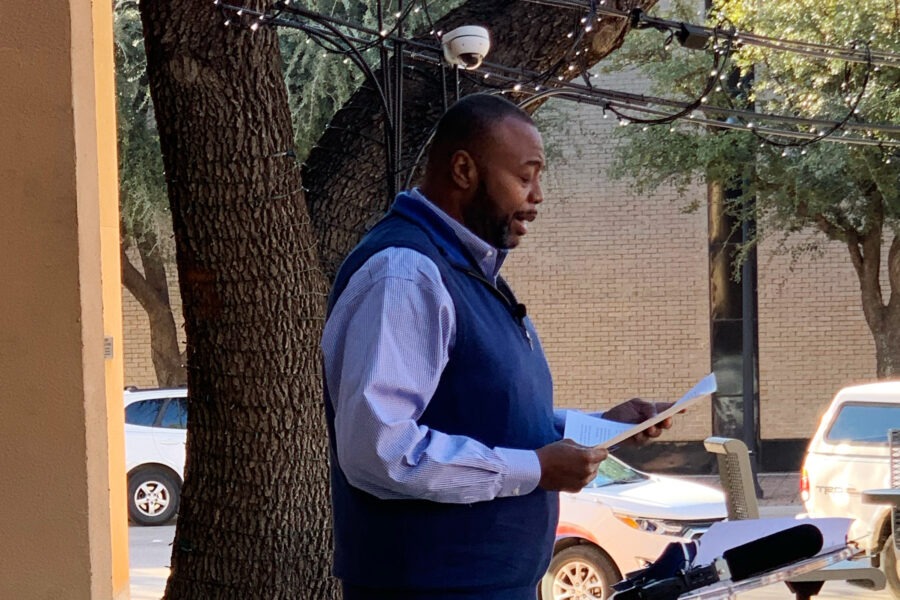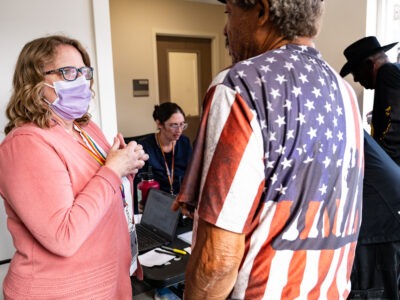City of Abilene Mayor Anthony Williams and community leaders came together today to celebrate the announcement that the community had ended chronic homelessness, reaching functional zero.
“This accomplishment belongs to no individual, to no organization, but rather to the people and community of Abilene,” Williams said. “[It belongs] to the hope that our small town has fostered, and to the everyday heroes that our community has raised up.”
Chronic homelessness is long-lasting or recurring homelessness for a community’s most vulnerable neighbors. It is defined by the federal government as impacting people who have experienced homelessness for at least a year — or repeatedly over the last 3 years — while living with a disability.
Abilene reached the milestone in November 2019, demonstrating that they have fewer than three people experiencing chronic homelessness at any time. The community has sustained this milestone for a year, despite the COVID-19 pandemic. This accomplishment came after reaching functional zero for veteran homelessness in February 2019.
“To choose to work toward ending homelessness was not an easy thing to do,” he said. “Two years ago, Team Abilene decided to do the right thing. Not just for the sake of greatness. But for the sake of the most vulnerable in our community.”
Abilene has taken anonymity out of homelessness. And in the face of COVID-19, creating a system that can identify residents experiencing long-term homelessness, by name and in real time, is as critical as ever. By reaching functional zero, the West Texas Homeless Network, Abilene Hope Haven, and their community partners have built a data-driven system that can keep homelessness rare and brief when it occurs.
“I’ve worked with a lot of communities across the United States,” said Katherine Bisson, Executive Director of Abilene Hope Haven. “We are lucky to have a mayor, nonprofit leaders, and business leaders in our community who support the work we do and is a part of it.”
Now with a system that can promptly identify and support veterans and people experiencing chronic homelessness, the Abilene team is focused on protecting its progress while expanding its efforts to end youth and family homelessness.
“We’ve seen the impossible become possible,” Williams said. “As a community, let’s show the world that we have more impossible things to achieve.”




